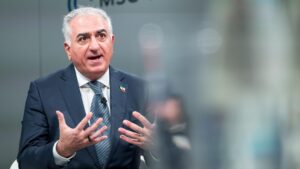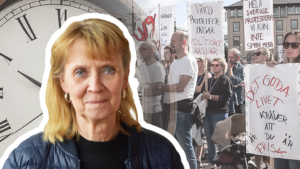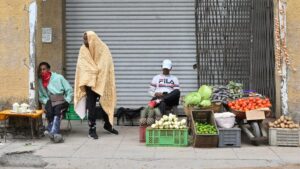Two Swedish journalists are missing in Syria. Magnus Falkehed and Niclas Hammarstrom have probably been kidnapped by some rebel group or criminals.
Being captured by armed men in the chaos of the war in Syria is a nightmare scenario. I hope for their sake and for their families, friends and colleagues’ sake that they soon will be released and in safety.
But the incident raises not only compassion. It makes me once again mad at Swedish journalists and mainstream media. The media reports after the kidnapping are as bad as the previous reporting about Syria.
”Journalists in place are needed to make the war understandable,” proclaims the Swedish newspaper Svenska Dagbladet on November 27 after the kidnapping. I agree. Journalists in place are needed to give voice to those who would otherwise not have a voice, and they are needed to depict what those in power want to hide. And journalists must when required violate laws and defy governments. I agree, me myself have done that.
But the problem with media coverage of Syria is that journalism rather than scrutinizing the power is endorsed in its services and – consciously or unconsciously – describes the reality as the power views it. It is like when Barack Obama said that 1400 had been killed in the chemical attack in Ghouta and media immediately began to make use of that digit.
One of those who has paid attention to the distorted reporting in the West is Patrick Cockburn, British The Independent.
“Every time I come to Syria I am struck by how different the situation is on the ground from the way it is pictured in the outside world. The foreign media reporting of the Syrian conflict is surely as inaccurate and misleading as anything we have seen since the start of the First World War. I can’t think of any other war or crisis I have covered in which propagandistic, biased or second-hand sources have been so readily accepted by journalists as providers of objective facts”, Patrick Cockburn wrote after being in Syria this summer.
Last spring the Swedish Magazine Café published the reportage ”Inferno from within” by Staffan Heimersson and the now vanished Niclas Hammarström. ”This year’s scariest and most important story”, was the motivation when they received the Swedish prize Journalists of the Year.
The images from Aleppo are touching and the text draws the reader into the horrors of war. But the reportage gives a bitter aftertaste. The overall picture presented for the reader is the rebels’ propagandistic and biased view of reality.
Heimersson tells about the rebels’ ”Free Syria” in contrast to the Syria controlled by ”tyrant Assad”. This approach is the basis for the story.
Heimersson speaks about the ”popular uprising” in Aleppo and ”the rebels of the popular uprising” even though it is well known that the inhabitants of Aleppo never rebelled. The war came when rebel groups invaded the city.
Heimersson admits that there are al-Qaeda extremists in the Aleppo region. But commanders he spoke with are telling him that they are not more than 70 (!). And therefore al-Qaida will not have any influence in ”Free Syria”.
Finally, he claims the support for the rebels from Turkey, Saudi Arabia and Qatar has been ”restrained”. And the Western world – including the U.S. – allegedly has kept their hands off Syria. No cash flow, no weapons deliveries, no military training camps in the world of Heimersson …
To depict the Free Syrian Army and other insurgent groups onsite have almost become a trend among the Western world’s foreign journalists. Such reportages you could find even in Swedish local press. The rebels’ voices are heard across the world, because it is them that media chooses to portray. It is them who Western powers support.
But there are silenced voices in the Syrian conflict, people who almost never come in contact with foreign journalists. The silenced voices are the Syrians who are opposed to the armed insurrection, and according to themselves constitute the overwhelming majority of the people.
They are civilians in government-controlled areas who are tired of war and terrorist bombings. They are residents in ”Free Syria” who wish nothing else than that the Syrian Arab Army would come to liberate them from the violent rule of the extremists. They are opposition people who believe that war and destruction will not lead to democracy. They are pacifists and local activists working for peace and reconciliation. They are millions of Syrians – Assad supporters and opponents – who hope that the peace talks in Geneva will take the country away from the hell of war.
One issue that unites the Syrians I have contact with in Syria and in Sweden is the anger against media coverage in the West. A citizen of Damascus wrote a long answer after I told him about the two Swedish journalists. He felt sorry for the incident, expressed his sympathy and hoped that everything would go well for them. But he could not resist telling about the events that do not appeal to Western journalists, the rebel terror.
”Just yesterday 20 civilians were killed in Damascus, and five doctors and eight medical staff were massacred at Deir Attiah Hospital north of the capital. Not to mention Aleppo and other places. ”
He blames the West and Gulf countries. Their support to the rebels were never about democracy, but about politics and natural resources.
”The Syrian tragedy is an everlasting shame of the West’s enlightenment and renaissance rhetoric. For us Western civilization has died”, he writes from Damascus.
After the disappearance of Falkehed and Hammarström there is much talk in mainstream media about how dangerous Syria has become. But the explanations are absent.
I have a hint for the journalists who now marvel at the ravage of the al-Qaeda extremists. Read what the American journalist Seymour Hersh wrote in The New Yorker in March 2007 about U.S. foreign policy focus in the Middle East, which in many aspects is to divide and rule.
Hersh was already in 2007 able to reveal that the United States, through its Saudi allies, had begun to support extremists groups sympathizing with al-Qaeda with the aim of fighting enemies like the Syrian government.
The foundation of the Syrian tragedy was laid long before 2011.





